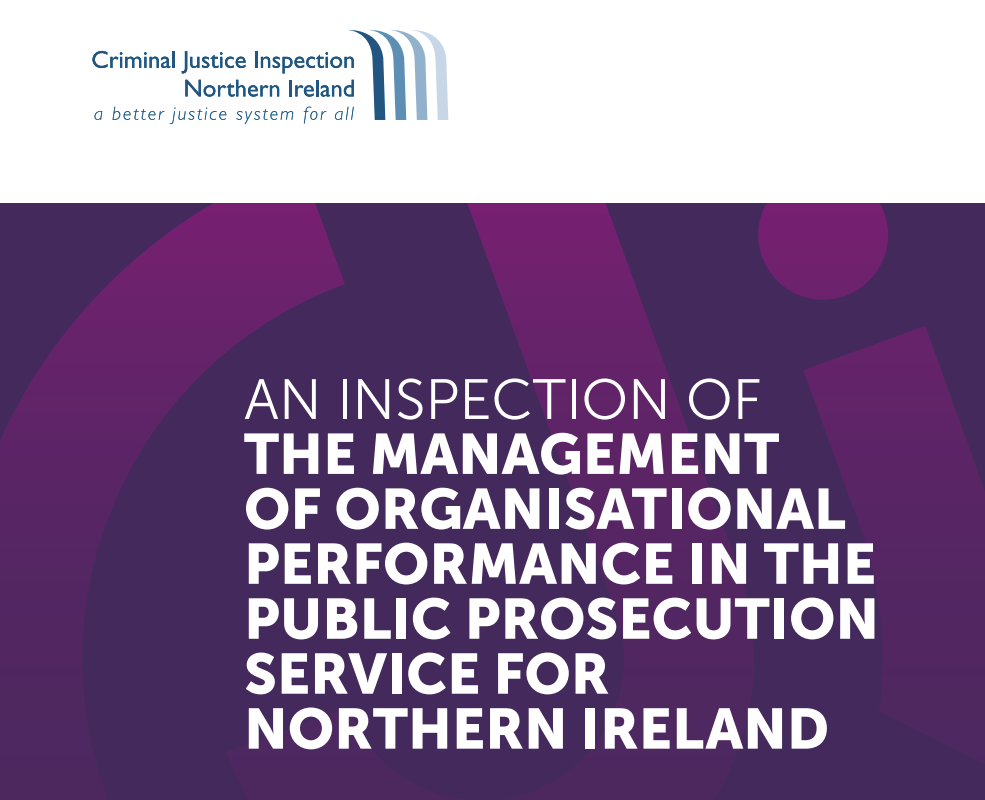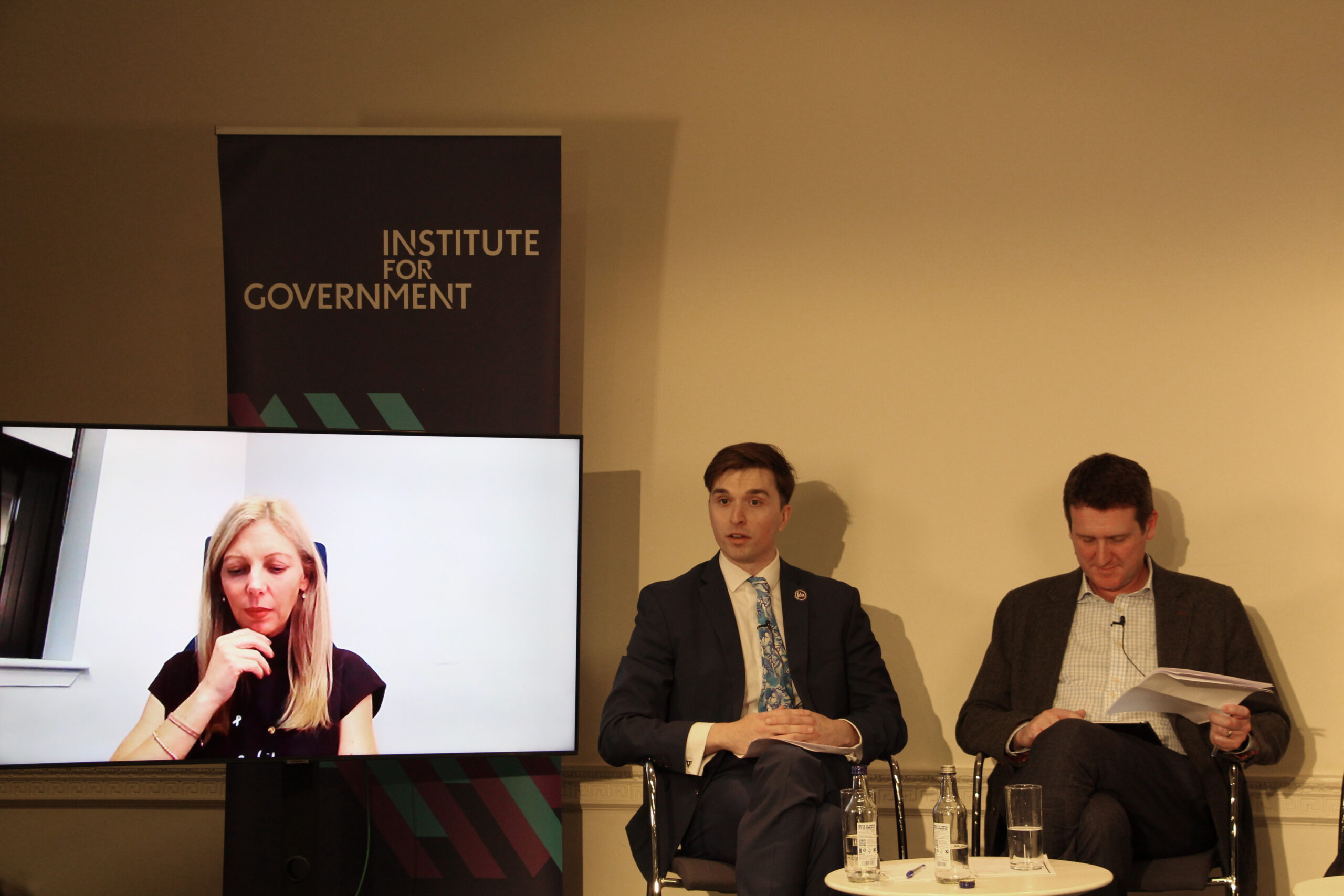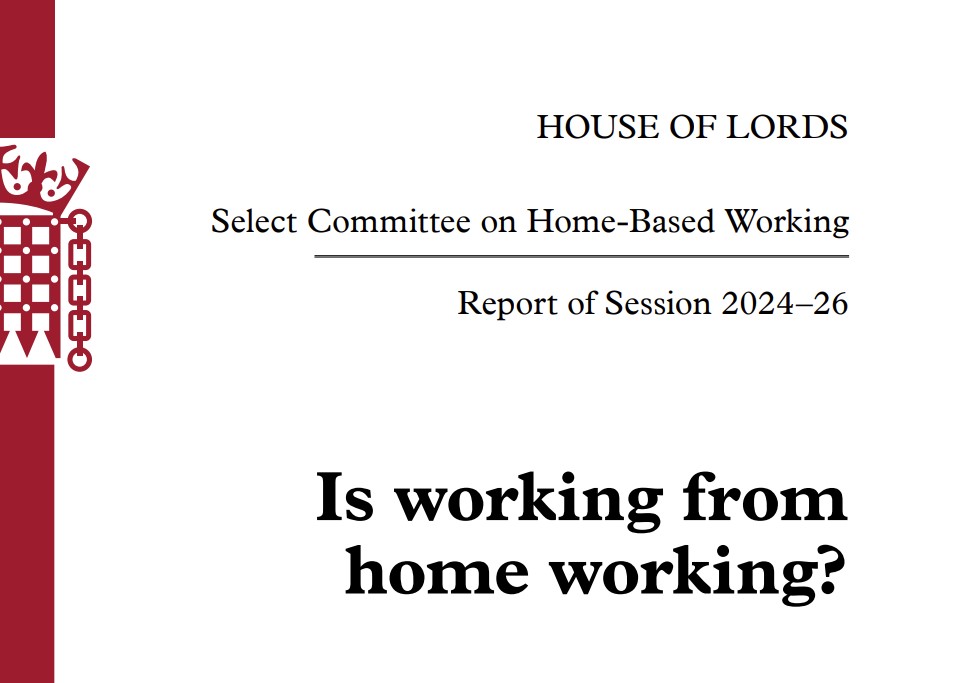Spotting opportunities and building resilience

It is a year since Jayne Brady took up the role of Head of the Northern Ireland Civil Service after a varied career in the private sector. She acknowledges that it has been “an eventful year” and says that she often jokes with her team that “it feels like dog years in the civil service”. The last twelve months has seen the civil service dealing with the challenges of the COVID omicron variant, the cost-of-living fallout from the outbreak of war in Europe, as well as the loss of her First Minister and the collapse of the Northern Ireland Executive. Despite all this, Brady says it is “the privilege of my life to have this job. What I’ve seen in the last twelve months is what public servants do in the most difficult and the most challenging of times. We’ve had to face in to significant challenges, both for the people in our service who are delivering solutions, but also remaining cognisant of the people we serve as well – they are living with the implications of the cost of living and pay pressures”.
Despite the big crisis points that the NICS has had to face, Brady is very proud of what has also been achieved from a policy perspective in her first year in post: “We delivered a domestic and sexual abuse policy that was award-winning, we delivered a new menopause policy – and I was delighted as a woman of a certain age to be involved in that… We hosted the Harkin International Disability Employment Summit, the first time that was hosted outside of the US.” She also references the efforts that have been made to open up the NICS and ensure a diverse mix of staff, launching a guaranteed interview scheme for people with disabilities, expanding their student placement scheme, and introducing their first graduate entry programme. Whatever crises they have had to respond to, Brady is keen to ensure that the service is “building up the structures we need to ensure a diverse workforce that reflects the people who we serve”.
“We have to address economic inactivity, low productivity levels and socioeconomic challenges”Reflecting on her background in technology, and specifically as a systems engineer, Brady says she is interested in how something is put together to deliver an overall outcome – “it’s working out where the cogs need to be to make the whole system work… there can’t be weak components in that or it won’t work”. This frames her approach not just to getting the best out of the civil service, but also to dealing with Northern Ireland’s big systemic issues. Brady notes that “we have to address economic inactivity, our low productivity levels, our differentiated outcomes and socioeconomic challenges”, and she stresses this cannot be done with a single departmental view: “You need to have a systems-level approach to how we make sure all those cogs are working together.”
Brady also spent seven years as a venture capitalist, which she says was all about “spotting a moment of opportunity, understanding where the critical assets were, or critical competitive advantage that you might have”. As we approach twenty-five years since the signing of the Belfast Good Friday Agreement, she believes Northern Ireland is at “a pivotal moment”. “Spotting that opportunity, that’s the reason I applied for the job. I think we’ve got so much potential and so many opportunities ahead.”
Brady stresses however that there are many more similarities between the public and private sectors than many people think. “Lots of people said to me I’d have a big culture shock coming into the public sector – and of course there is a difference in what is being delivered. But in the private sector we have shareholders, and in the public sector we have citizens. In the private sector, I had a board to be accountable to, here I have an Executive. There is a lot of commonality in the structures.” What struck Brady, however, in her new role was that for everyone she engaged with, at either a political or official level, “the bottom line is always about delivering something better for the people they serve. You can debate how to get to that position – that can be the difficulty – but the core, fundamental point is ‘does this make things better?’ and that is so refreshing. We can have all the difficult conversations in the world, but everyone is out to make things better, and that’s the defining perspective I’ve got.”
Brady speaks warmly of the productive working relationships she enjoys with colleagues across the other devolved administrations, and in both the UK and Irish Governments, saying that while the constitutional status of the NICS is different to that of the other devolved administrations, this hasn’t impacted relationships. As well as regular formal and informal discussions with her Irish counterparts, Brady also attends the Wednesday morning network meetings of all the UK Whitehall Permanent Secretaries, praising how helpful this is, not just “in terms of looking at those issues that are not devolved, but also common areas of learning and support, as we dealt with Omicron, with the Ukrainian refugee situation. It’s a proactive and supportive relationship, both North-South and East-West”.
Looking to what the future holds, clearly Brady’s mind is on the need to get an Executive up and running, so the civil service “can deliver a mandate”. She is clear that the decisions around that are a matter for politicians, but that the NICS can work to support the environment that allow those decisions to be taken.
“We need to build a recovery strategy for our economy, but we also need to build one for our civil servants”Beyond that, Brady’s focus is on the need to build resilience: “My civil servants are being asked to be very resilient to every crisis that comes along – and we need to build that resilience into the service and into Northern Ireland as a whole. We need to build a recovery strategy for our economy, but we also need to build one for our civil servants.” Internally, that means looking at how to build structures to allow people to communicate better and to recognise opportunities for development. Externally, Brady acknowledges that while Northern Ireland has weathered the shocks, “we haven’t dealt with the big systemic issues, and we will continue to be hit hardest if we don’t build that resilience. Policy is obviously for ministers to decide, but, looking as a service, how can we provide input that addresses those big issues? How can we provide higher productivity and more and better jobs? How can we achieve those challenging net-zero targets, while also growing new sectors and solutions?” Coming back to her engineering background, Brady argues that the answer lies in building “systems-level resilience in the civil service, and systems-level resilience for the whole of Northern Ireland”.
Northern Ireland’s inclusive innovation journey
Drawing on her time as Belfast’s Innovation Commissioner and as a member of the UK Government’s Innovation Expert Group, Brady recognises that investment in Northern Ireland needs to be in those areas “where we have a competitive advantage”. Northern Ireland’s City and Growth Deals have seen £1.3 billion committed over the next ten years to invest in “areas such as health and life sciences, our advanced manufacturing sectors, green technology, screen and media innovations – we’re a home of HBO filming – robotics and artificial intelligence. This will help us deliver that step change in terms of more and better jobs, and higher productivity, and more money in our people’s pockets”.
Brady is clear however that this innovation journey has to be inclusive: “One of the issues we have is the skills gap – the right level of skills to match that opportunity – so one of our biggest challenges is how we bridge that. If you look at where we sit overall in the UK, we have the highest levels of economic inactivity – 28% versus 22% average in the UK, and a large proportion of that is people with disabilities, so we need to offer significant pathways to those high value jobs, and to close that gap. That will ultimately allow us to be more resilient to the kind of economic shocks we’ve seen.” Brady adds that the NICS has “a very ambitious programme on delivering step changes on green growth, prosperity and productivity”.
Future ways of working: how the pandemic “smashed Holy Grails”
What impressed Brady most about the public sector, after starting her job as a Digital Innovation Commissioner on 1 April 2020, was how overnight “this big machine, which I thought couldn’t move, moved so rapidly. Public servants were dealing with all the same issues as everyone else, home-schooling kids, yet all these things we thought weren’t possible became suddenly possible. It was hugely impressive to me, and I wanted to be part of an organisation that could do that”. While transforming services, public servants still had to “keep their eye on the long game” and keep delivering better policy interventions. Brady believes hybrid ways of working was a critical aspect of this. “I think in many ways, for the people in our service, there were ways of working we thought couldn’t be facilitated, but the pandemic broke those Holy Grails, and actually showed we could deliver new and different ways of working”. Brady cautions against a reversion back to “those old siloed mindsets”. She also pays tribute to the role of the trade unions in this process: “Our work with the unions was so important throughout, how new ways of working needed to be bespoke to departments and the need to understand the implications of changes, to support different and more flexible ways of working”.
Related News
-

Prosecutors are undervalued, underpaid and overworked, says FDA responding to CJI NI report
The FDA has responded to a new report from the Criminal Justice Inspection Northern Ireland (CJI NI) into management and performance of the Public Prosecution Service (PPSNI).
-

FDA calls for pay parity on IfG panel discussing Fast Stream reform
FDA National Officer for the Fast Stream Robert Eagleton took part in the Institute for Government’s (IfG) panel event, ‘How can the Fast Stream deliver more for the civil service?’.
-

Lords Committee report highlights lack of evidence behind civil service 60% office working mandate
A new report from the House of Lords Select Committee on Home-Based Working, which features evidence from the FDA, says the government should lead by example with good hybrid working practices within the civil service.